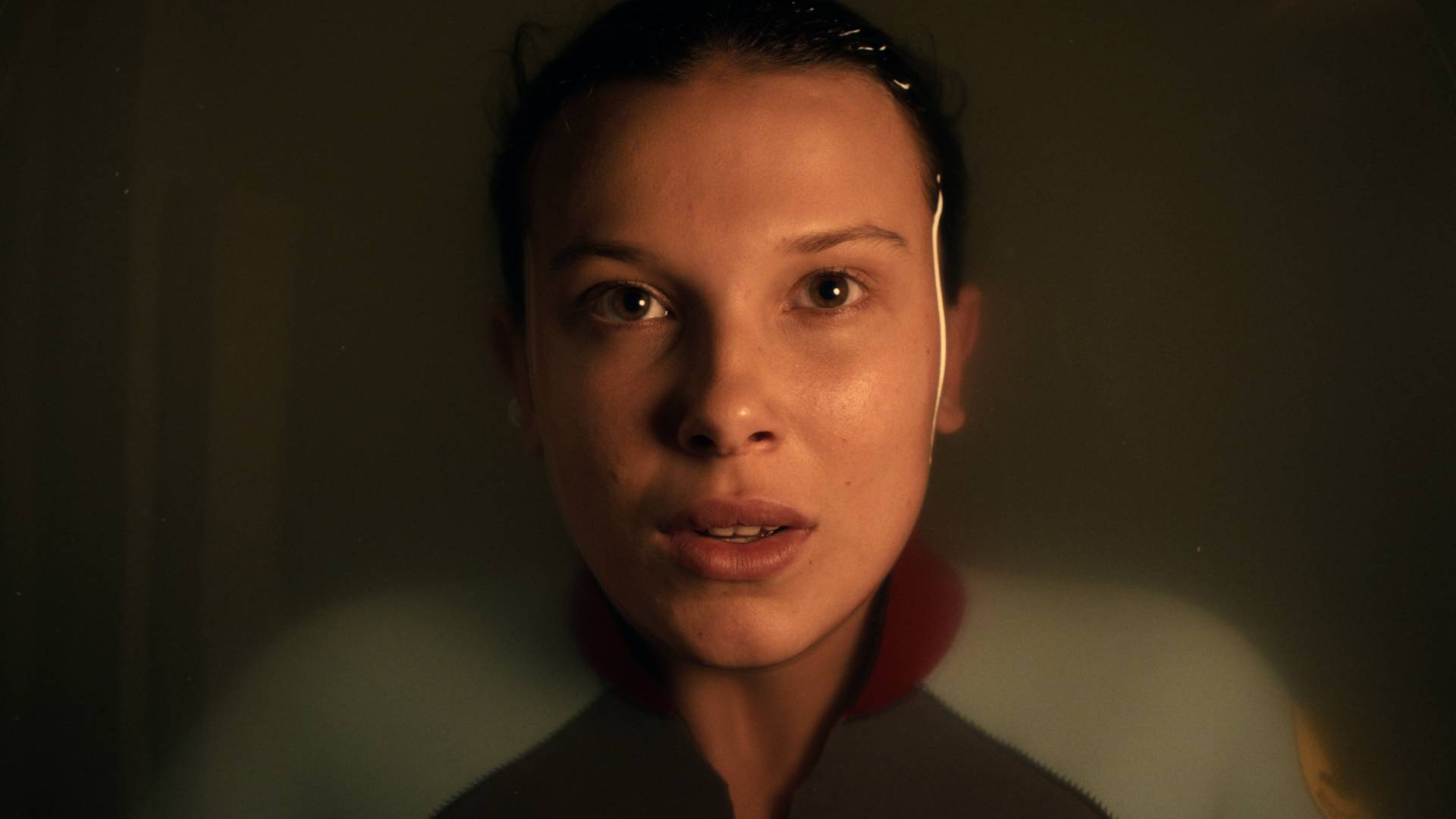Playing Lord of the Rings: Return to Moria feels like Middle-earth Minecraft
Feature | Getting in the dwarven spirit
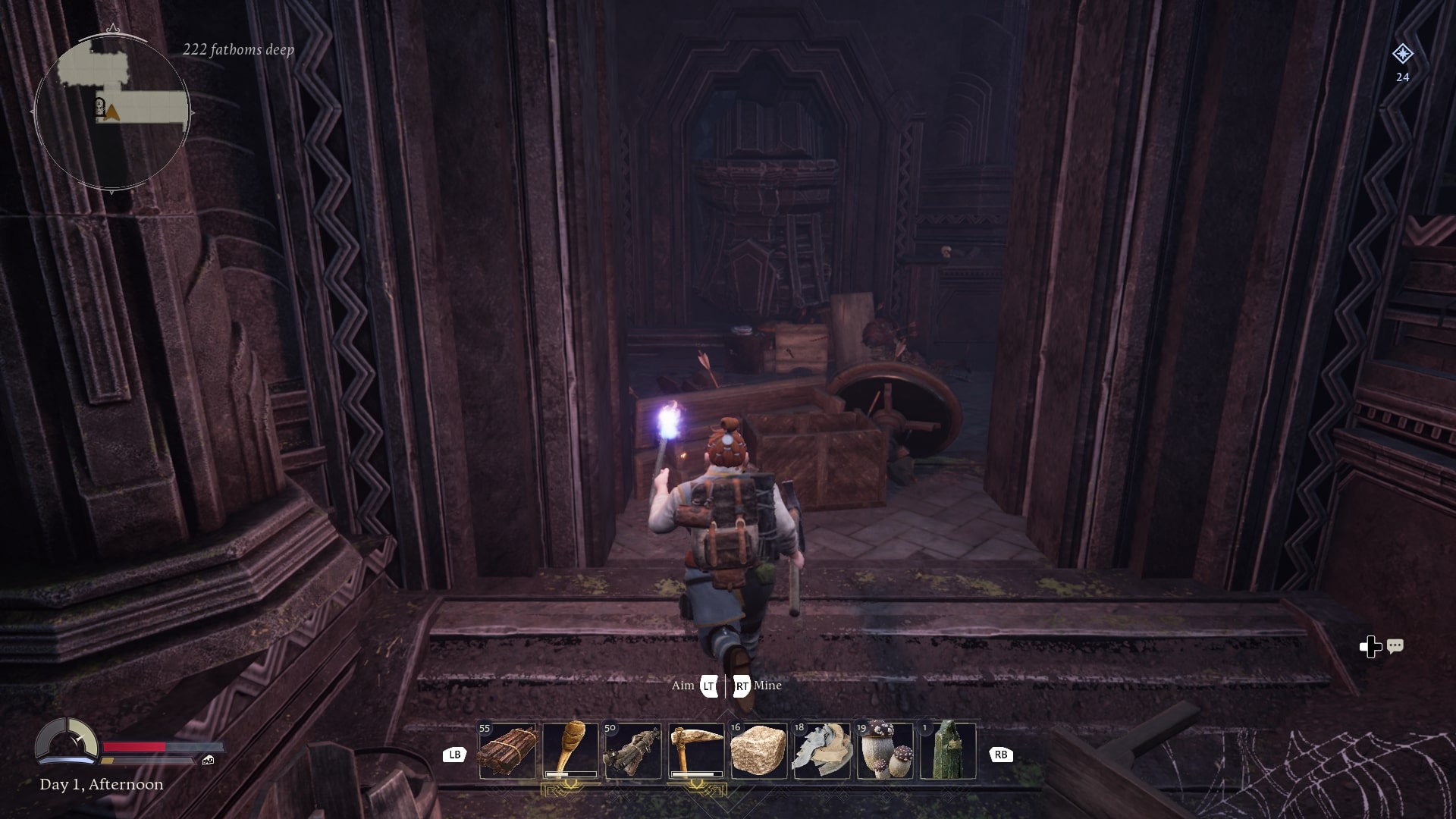
"Watch out! Them dwarves are about," an orc sneers nearby. I immediately extinguish my torch and hit X to stop my tuneful singing, something my merry little dwarf is prone to breaking into while happy in his work in The Lord of the Rings: Return to Moria. As much as I enjoy his ditties, sound and light are two things you must moderate while carving a path through these war-torn mines – lest you end up back on the menu.
A survival crafting game set against the rich backdrop of JRR Tolkien's Middle-earth, Return to Moria will feel familiar to fans of the films, books, and anyone that enjoys playing Minecraft. Separating the iconic locales, as seen in Tolkien's universe, are myriad procedurally-generated chambers, each with unique spots to mine, craft, and set up camp. Picking my way through them (literally) was no mean feat as a lone adventurer in a game built for the multiplayer experience, but it was no less a magical one.
Gimli's finest
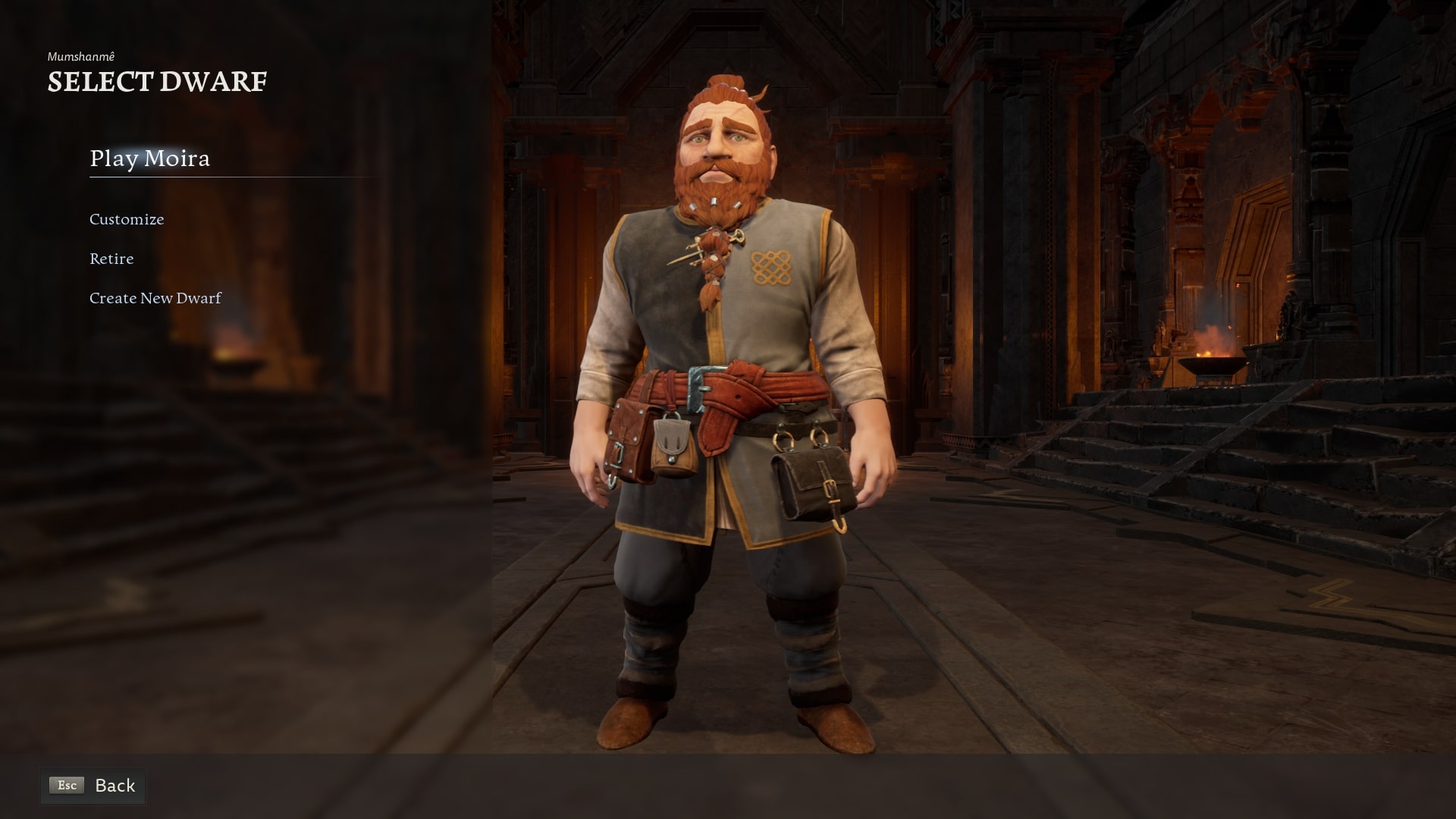
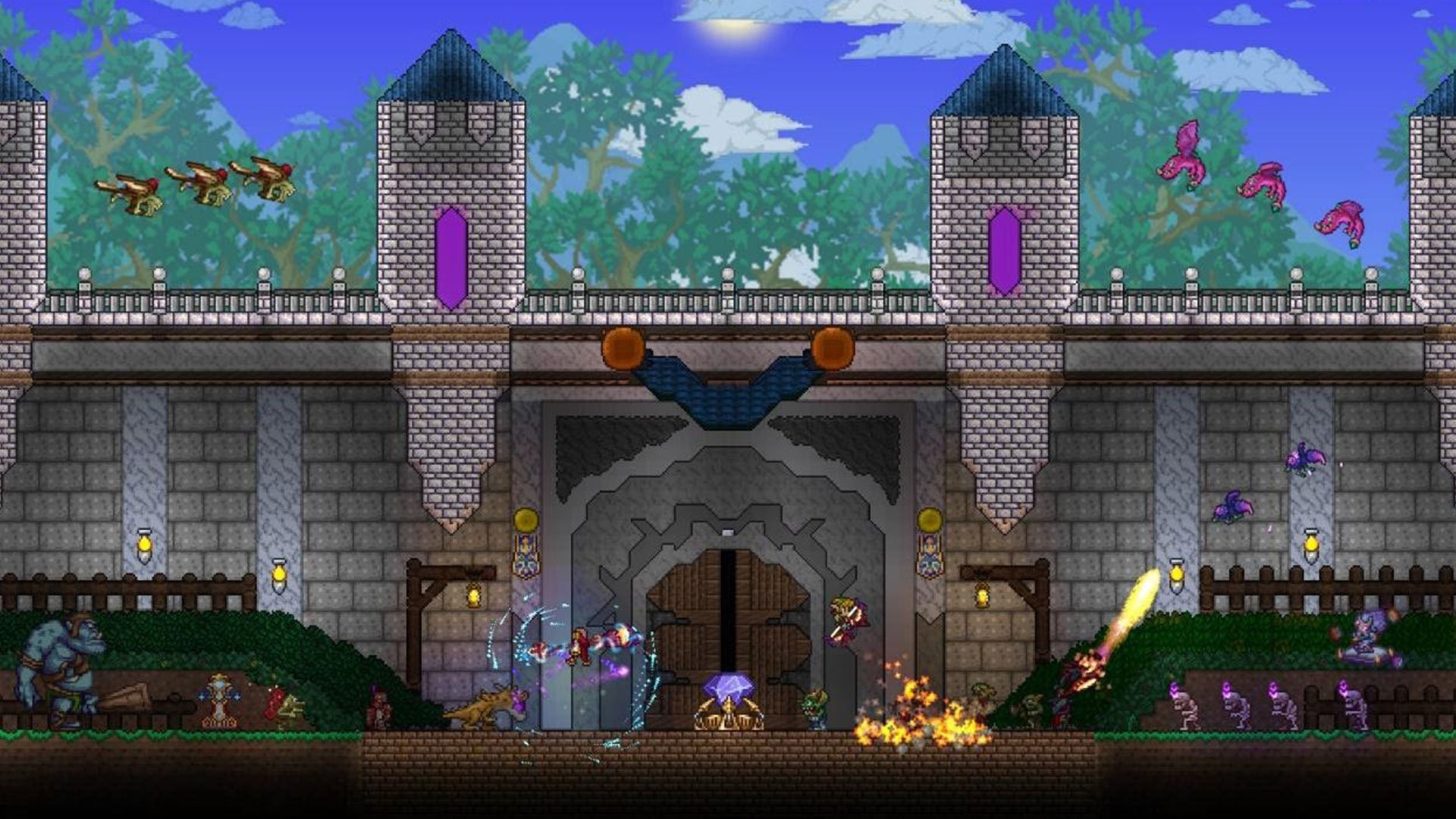
If you love a survival-crafting gem, these games like Minecraft should keep you busy.
My first hint that Return to Moria will truly shine in its online multiplayer mode comes before I even load in. While creating my character, a worried yet dapper redheaded iron dwarf named Moira – so named in honor of my frequent typo when writing out the game's name – I'm struck by how many customization options there are. From cosmetic changes to attitude, origin, and body types, it's possible for groups of players to create a unique crew of pickaxe-wielding dwarf warriors from various backgrounds.
This is just one way that Return to Moria seeks to tap the Tolkien vein in earnest. It's good to see these choices impact the way I play the game too, with each of my emotes seeming to reflect Moira's "grim" disposition as he sullenly scoffs at nothing in particular. His pessimistic outlook thankfully doesn't seem to reflect in his ability to chip away happily at the towering, crumbling walls of Moria's procedurally-generated mines.
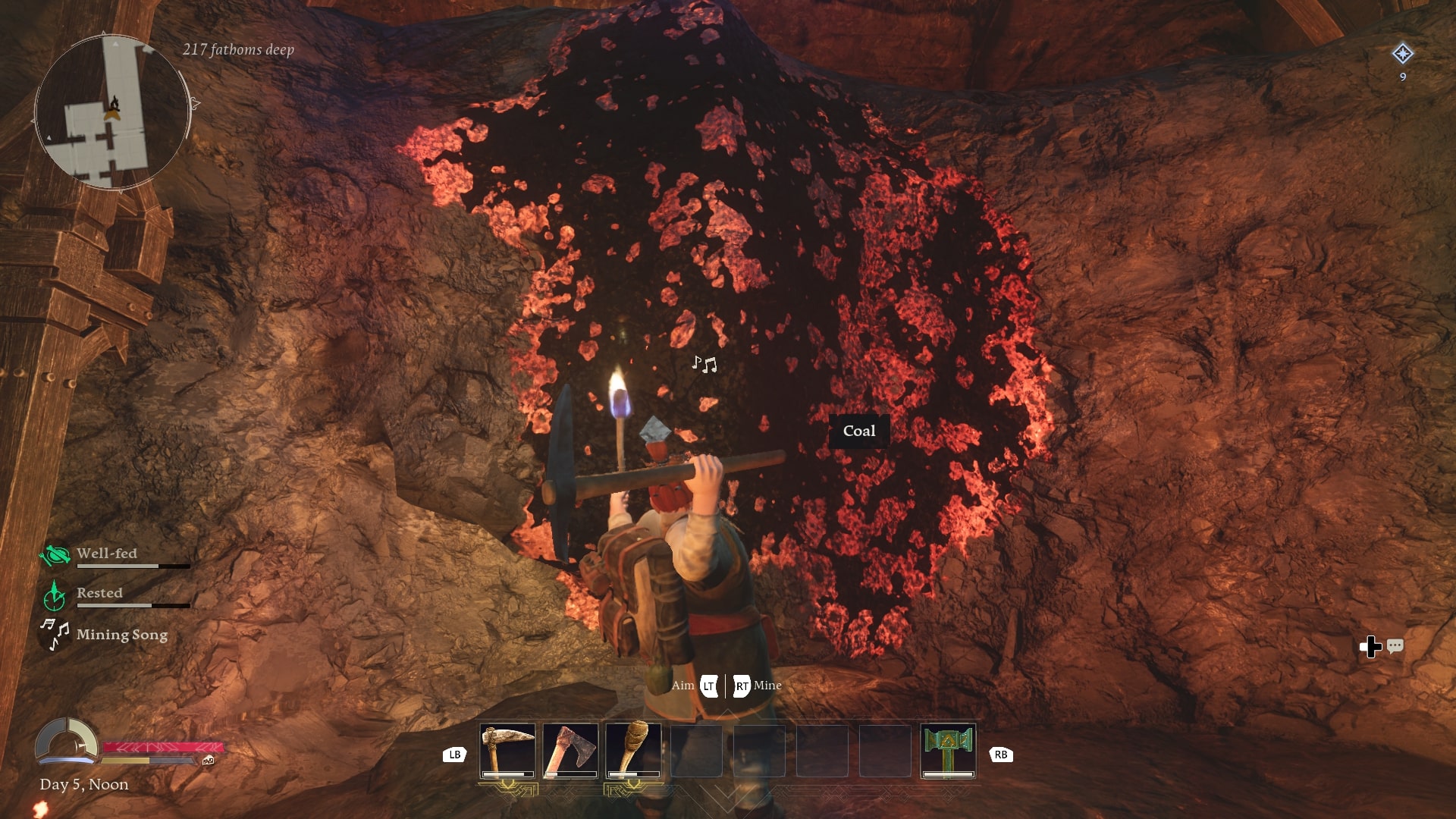
Dwarves are a perfect fit, both in the context of a survival game and in the LOTR universe.
Much like in Minecraft, an onscreen toolbar helps you equip certain items and pieces of gear to help you on your quest to reunite with the rest of your dwarven companions. With pickaxes for mining, axes for fighting off goblins and orcs, and various crafting ingredients, the most important tool in your arsenal is actually your makeshift torch. As director Jon-Paul Dumont told us in our The Lord of the Rings: Return to Moria preview, "you need to manage your noise and your light", in order to avoid the attention of enemies.
Being one lone dwarf, you'd think it'd be easy to evade such attentions. But as Moira starts happily singing while chipping away at a section of iron ore above a nearby goblin encampment, they start to notice. On-screen texts alerts me that I'm within earshot of them, so I quickly put out my torch and crouch down to avoid detection. I can't keep it that way for long, however, as being in the dark for long periods of time inflicts the Despair status effect, causing my health to dwindle slowly. It's a familiar mechanic I've seen in the best survival games, most notably in Frictional Games' Amnesia: The Dark Descent, to add a touch of horror and stealth to the mix. Even though I have an axe handy should the goblins seek me out, avoiding conflict as a solo player seems preferable.
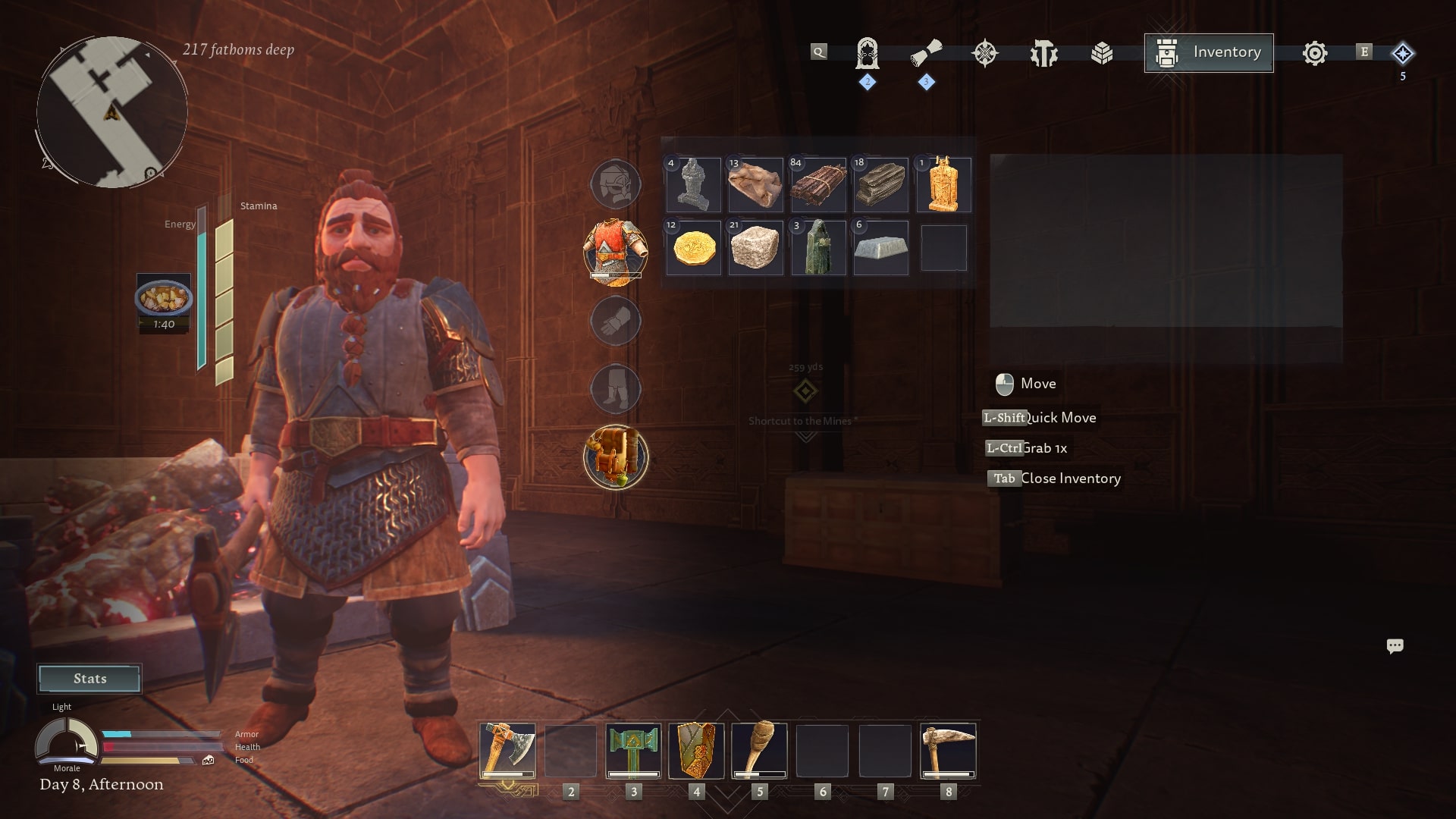
As far as the crafting elements go, menu navigation and quick build tools feel seamless with my Xbox controller. Building quick platforms to help me climb taller structures is simply a matter of hitting the down button on my D-pad, something that takes much less time than hacking away at bits of scaffolding in my path, and can also be used to put some much-needed distance between myself and the orc horde when they start chasing me. I imagine it's far easier to take on the horde in melee combat (or with a bow and arrow, if you unlock the requisite crafting plans) with the help of other players. Even when you play offline, there's no way to actively pause the game, so being on my guard for a surprise ambush or campsite siege is an absolute necessity.
Weekly digests, tales from the communities you love, and more
The best thing about Return to Moria for me so far, as a huge Lord of the Rings fan, is seeing little vestiges left by the Fellowship from the last time Gimli and company passed through. Whether in magical sigils scratched onto obelisks or rebuilding statues to commemorate Durin, one of the seven Fathers of the Dwarves, I run into plenty of interesting lore tidbits that keep the game feeling fresh despite its familiar systems. Dwarves are a perfect fit, both in the context of a survival game and in the LOTR universe. And did I mention that Gimli himself is still around? Because he is – you just have to reach him, so be sure to keep that pickaxe sharpened for the unexpected journey ahead.
Check out the best Lord of the Rings games for more interactive antics from Middle-earth.

Jasmine is a staff writer at GamesRadar+. Raised in Hong Kong and having graduated with an English Literature degree from Queen Mary, University of London in 2017, her passion for entertainment writing has taken her from reviewing underground concerts to blogging about the intersection between horror movies and browser games. Having made the career jump from TV broadcast operations to video games journalism during the pandemic, she cut her teeth as a freelance writer with TheGamer, Gamezo, and Tech Radar Gaming before accepting a full-time role here at GamesRadar. Whether Jasmine is researching the latest in gaming litigation for a news piece, writing how-to guides for The Sims 4, or extolling the necessity of a Resident Evil: CODE Veronica remake, you'll probably find her listening to metalcore at the same time.


